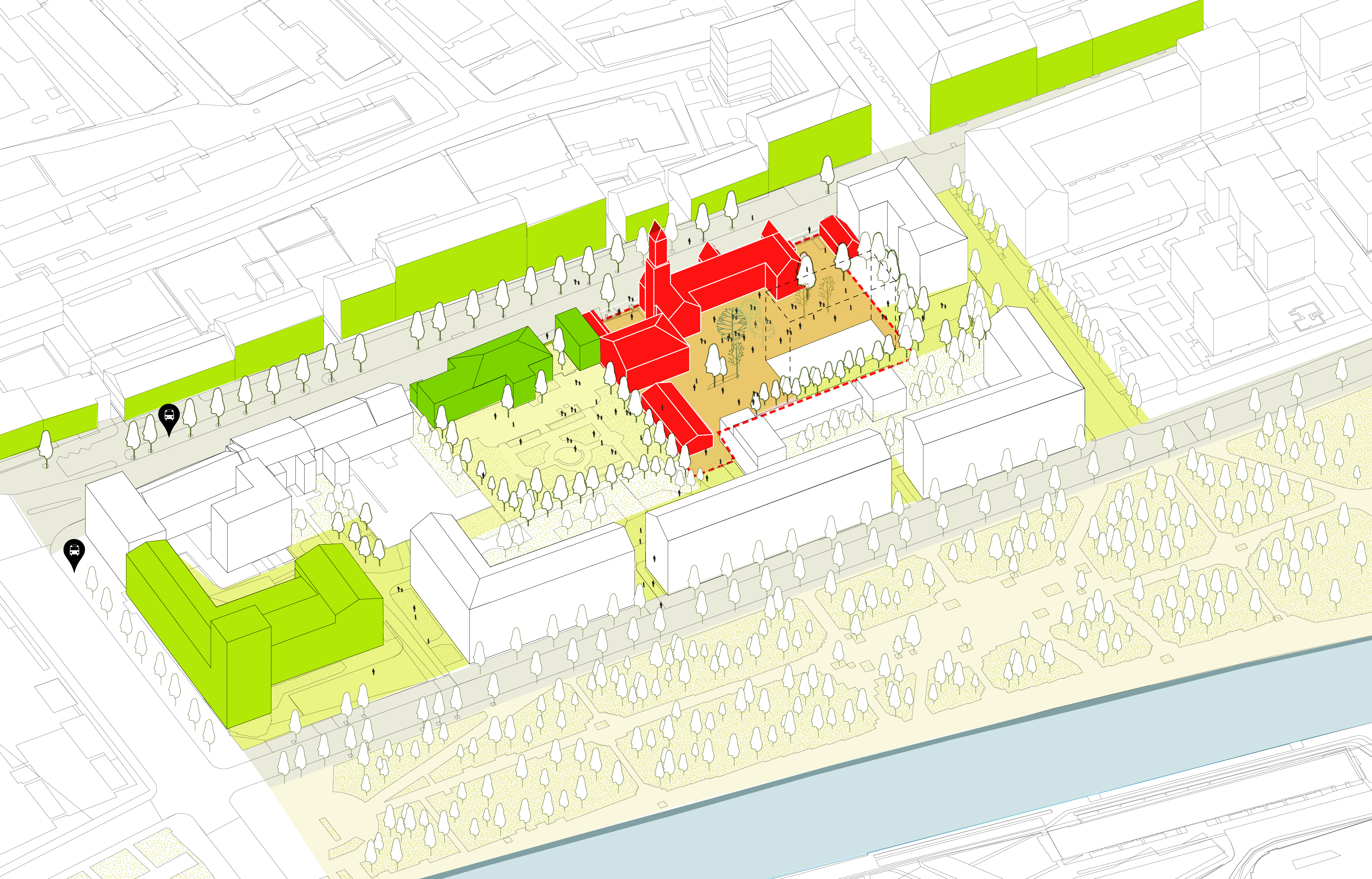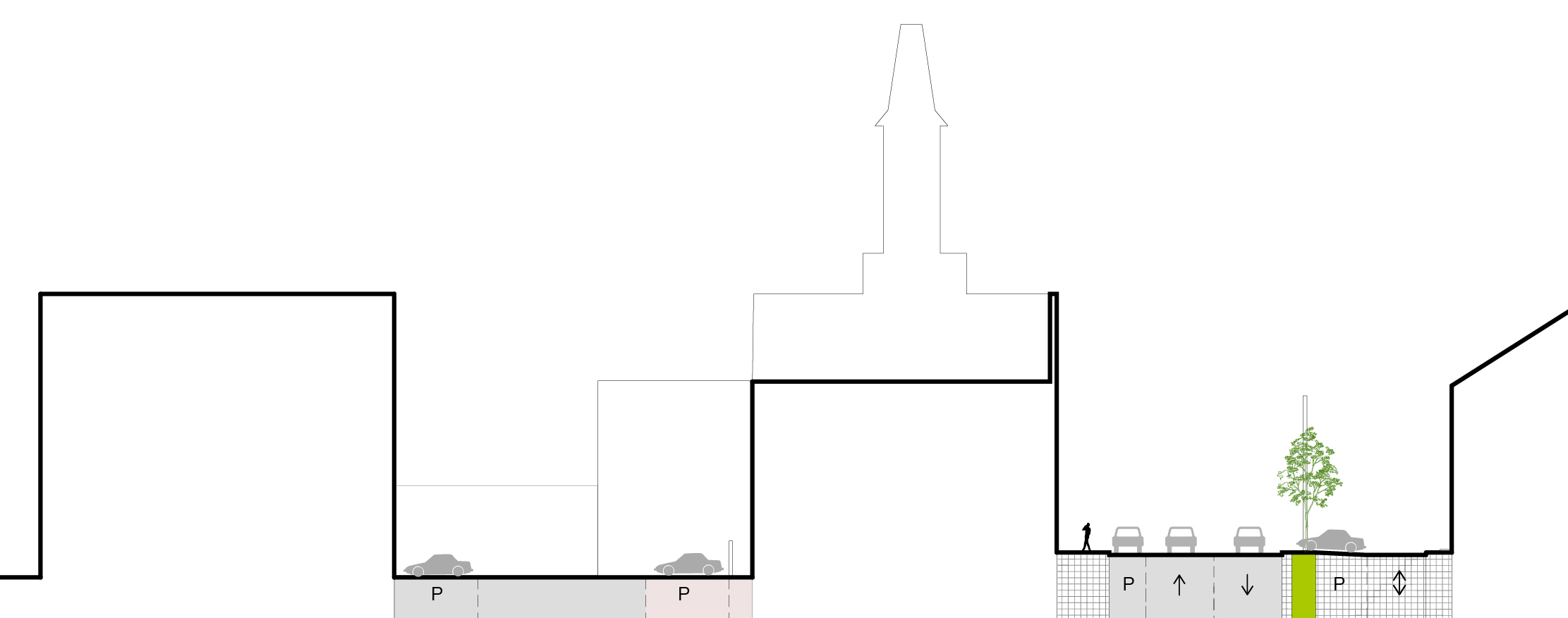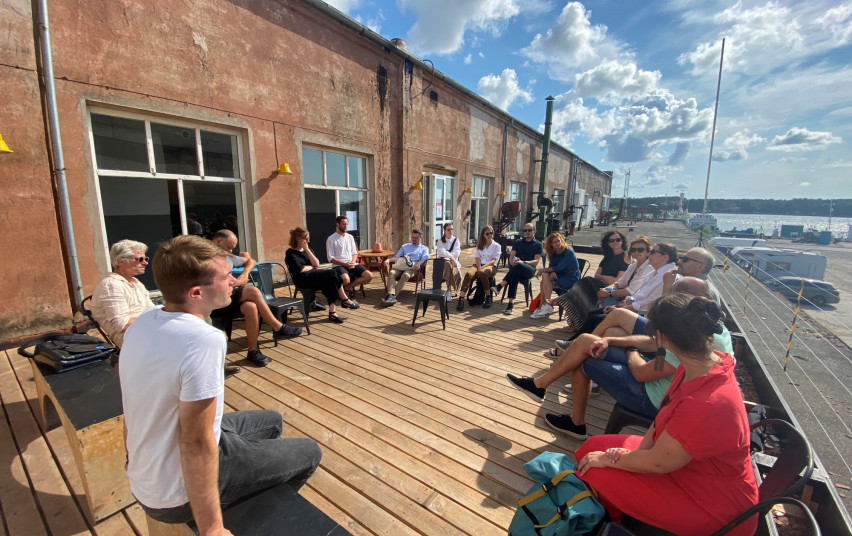

Feasibility study of Klaipėda central postal complex
The feasibility study sought optimal solutions on how to adapt the complex with great value of cultural heritage to the needs of the society while ensuring its preservation.
The organizers of the feasibility study in discussions with the state institutions, Klaipėda City Municipality, non-governmental organizations and the interested public were looking for scenarios and ideas on how to revive the abandoned Klaipėda Central Postal Complex. The process of preparing the study included an analytical part, a part for generating ideas and forming concepts, and a part for evaluating possible implementation scenarios.
You can find the detailed project proposal HERE.
Location: Klaipėda, Lithuania
Year: 2021
Client: Ministry of Culture of the Republic of Lithuania
Project type: architectural-urban feasibility study, ideas workshop
Bauland team: Donatas Baltrušaitis, Milda Pacevičiūtė
Curation of feasibility study: VšĮ Idėjos miestui, galimybių studijos vadovė dr. Inga Urbonaitė-Vadoklienė
Collaboration: Altitudės, dr. V. Safronovas, M. Kulbokas, I. Ambrazienė, Trinity Jurex, UAB Eurointegracijos projektai.
Year: 2021
Client: Ministry of Culture of the Republic of Lithuania
Project type: architectural-urban feasibility study, ideas workshop
Bauland team: Donatas Baltrušaitis, Milda Pacevičiūtė
Curation of feasibility study: VšĮ Idėjos miestui, galimybių studijos vadovė dr. Inga Urbonaitė-Vadoklienė
Collaboration: Altitudės, dr. V. Safronovas, M. Kulbokas, I. Ambrazienė, Trinity Jurex, UAB Eurointegracijos projektai.

The Postal complex is surrounded by cultural heritage sites. Liepų Street is an extremely important axis of cultural heritage objects, it is possible to create an integrated system of interacting cultural urban complexes.




Klaipėda central postal complex relationship with existing surroundings, opportunities and possibilities.


Historical Liepų street has potential to be more open and inclusive for citizens.


The interdisciplinary creative workshops helped to refine the three most potential concepts for the complex and to evaluate the idea of the F. W. Argelander Science and Art Center.
Chosen scenario - Argelander Center for Arts and Scniences (ACAS). The vision of the F. W. Argelander Center is based on the principles of navigation and communication. The past is reminiscent of the discoveries of scientists of previous centuries and the current cultural heritage of the complex, the future is shaped through an exploratory, artistic-scientific collaboration that allows visitors to explore the worlds of science, art and human perception.
Revival strategy is layed in stages for the most efficient realization.